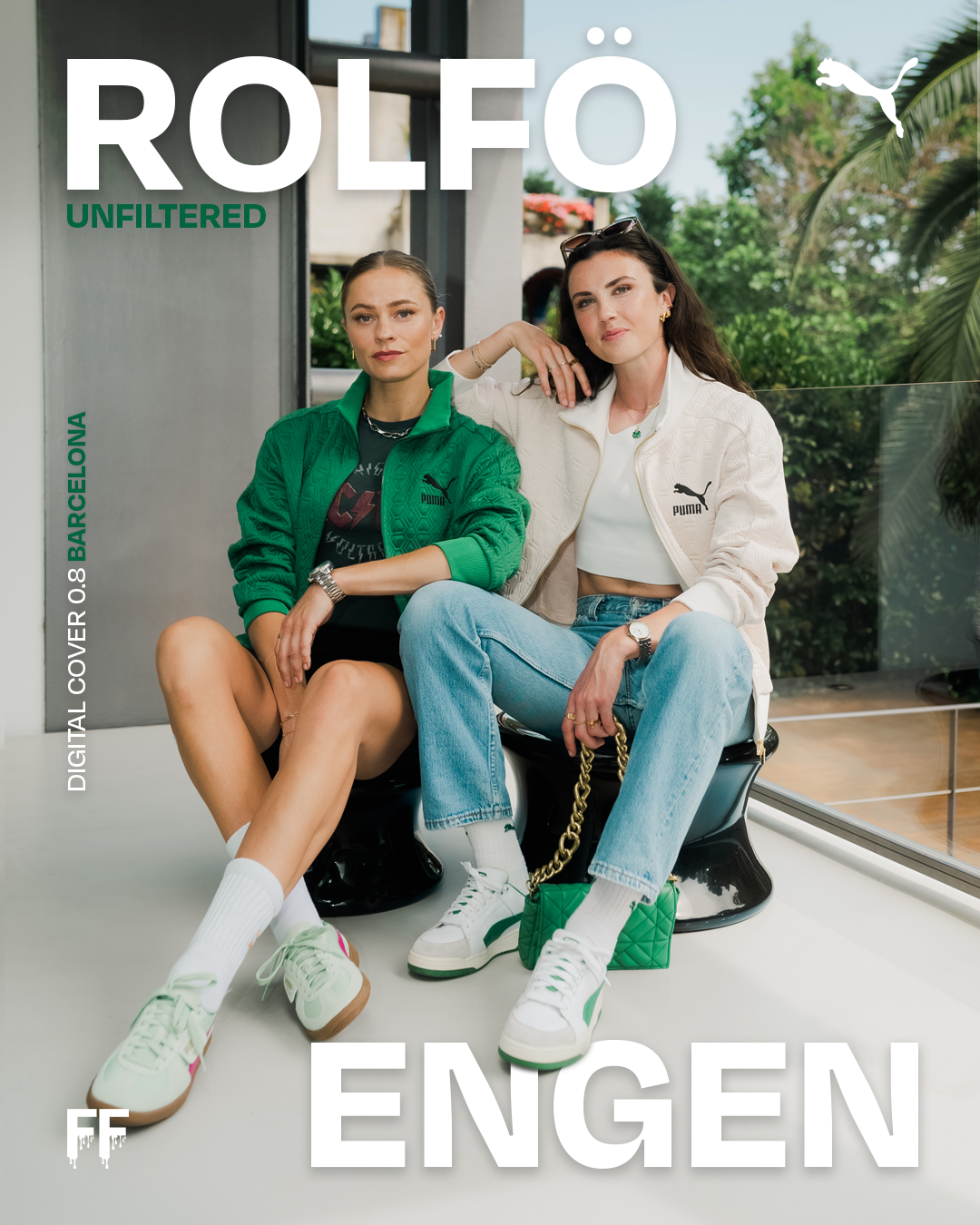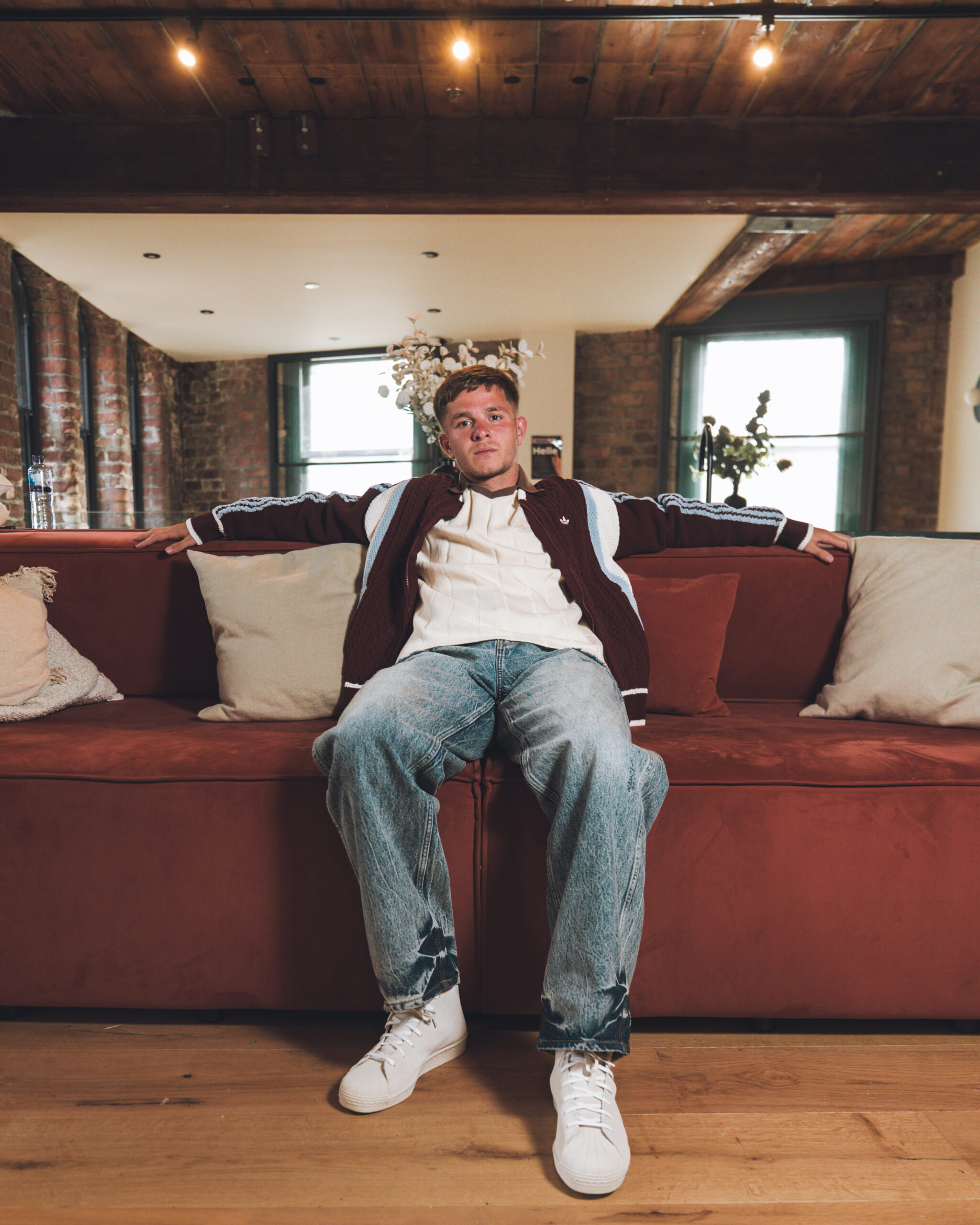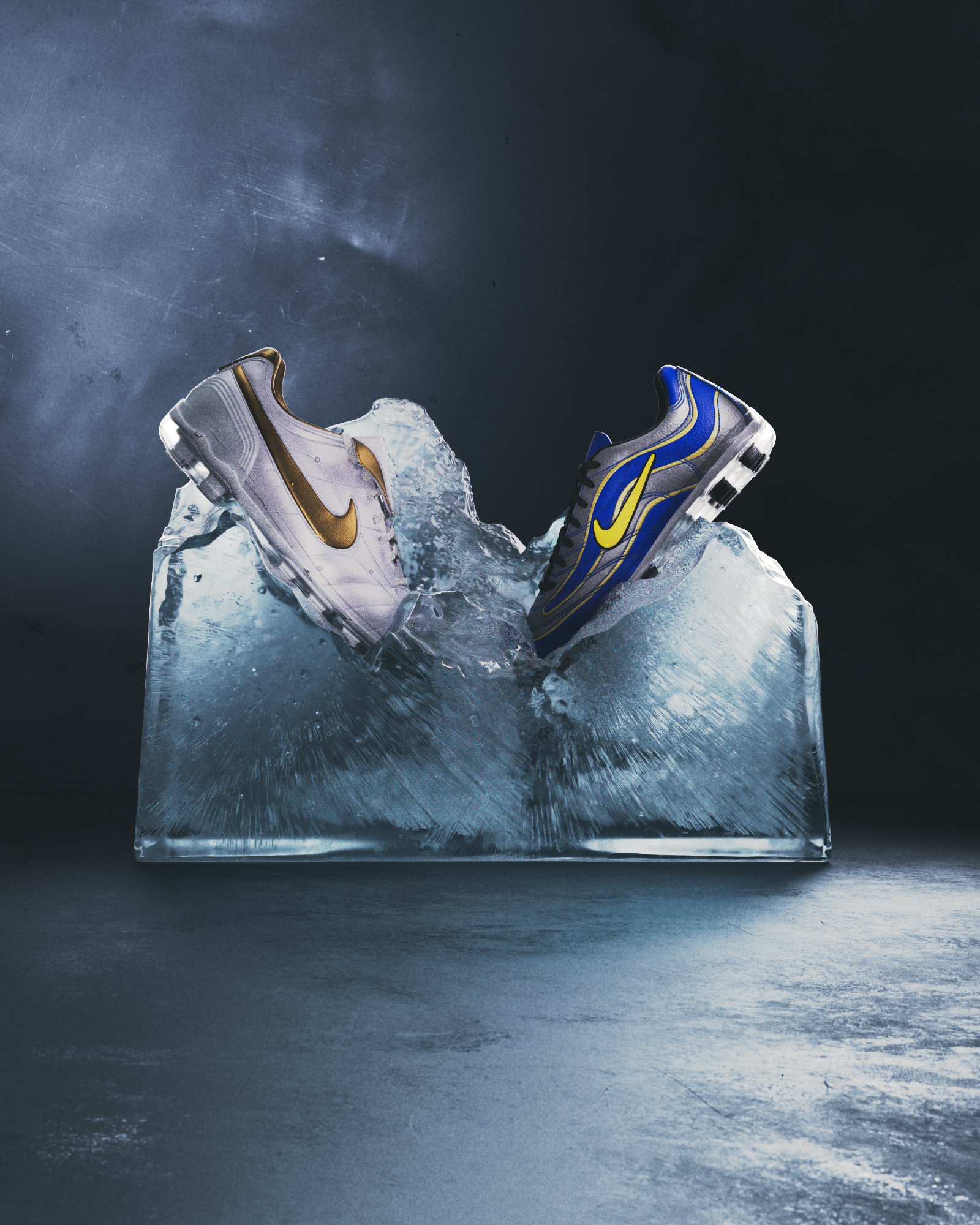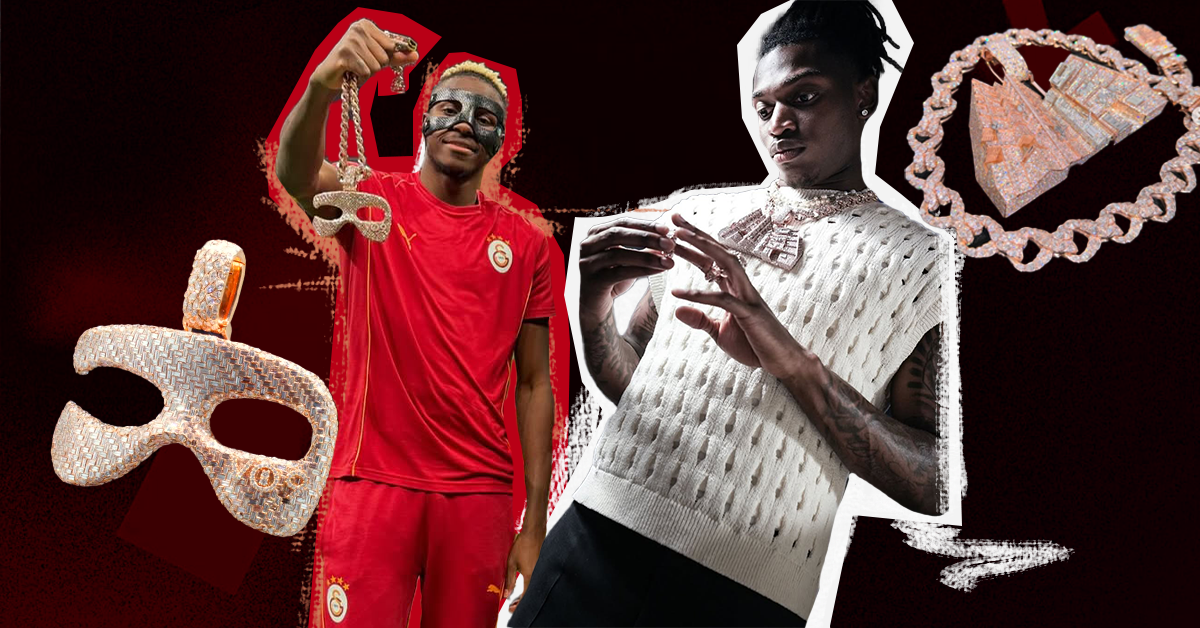It’s a fortnight from the moment Fridolina Rolfö and Ingrid Engen will find themselves lining up for the UEFA Women’s Champions League final and yet, had you not been aware of that beforehand, it would be hard to suspect such a career-defining event was ahead for the Barcelona Femení duo.
Not solely because of their willingness to take part in our photoshoot so close to the final, nor the endless energy they have brought with them on set after a long, hectic season of competing on all fronts. No, it would be the fact that neither Rolfö nor Engen had ever dreamt of becoming professional footballers that would surprise you most about the level they have since reached.
Thinking practically though, why would they? Growing up in Scandinavia – Sweden and Norway to be exact – women’s football was not only void of coverage, it was virtually invisible, just like it was for young girls in every part of the world.
Engen, who now plies her trade almost 2,000 miles from her birthplace of Melhus, believes change is coming and the days of girls being excluded from developing dreams of becoming elite-level footballers are finally and rightfully coming to an end.
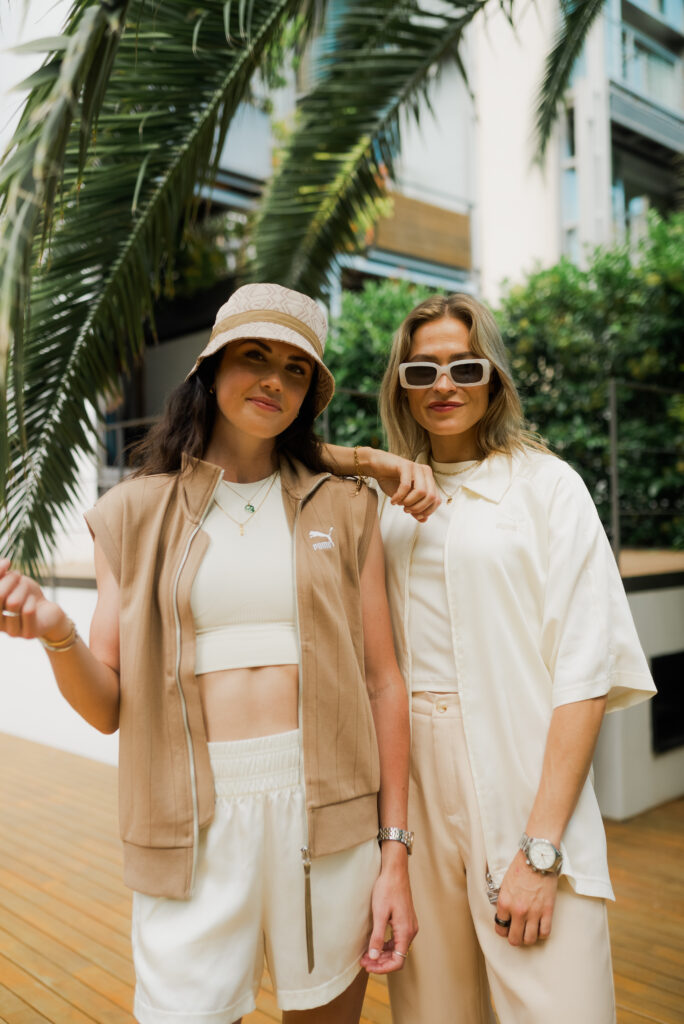
“I think visibility is key,” the 25-year-old says, reflecting on her own lack of childhood influence. “Now, young girls can see us play here, they see us playing for the biggest clubs and they can dream about and work towards being at the same place in the years ahead.”
Both Rolfö and Engen arrived in Barcelona after joining from VfL Wolfsburg Women in a double deal for the Spanish club back in 2021. The pair are also both signed to major sportswear brand PUMA and like their taste in both football clubs and brands, Rolfö and Engen also agree on the importance of visibility for the women’s game.
“Visibility. I think that’s the most important thing to make the game grow,” says Rolfö. “The younger girls looking up to us need to see us. Not only on TV but in the newspaper, they need to read more about it. I think that’s the most important thing that we are challenging, that women’s football is more visible.”
Though the fight for visibility is far from its endgame, interest in women’s football is undoubtedly on a rise at levels the game has not witnessed before. Barcelona Femení’s Champions League final clash against VfL Wolfsburg Women in Eindhoven is evidence of that, with the full 36,500 capacity of the Philips Stadium witnessing Jonatan Giráldez’s side come back from 2-0 down to win 3-2 and lift the prestigious prize for the second time in the club’s history, with Rolfö making history by scoring the winner.
“It would be a special feeling to win the Champions League,” Rolfö says prior to the match-winning performance she would later drop against her former club. “Ingrid and I, we’ve been in two finals and lost both of them so we know how it is to lose those important games and especially a Champions League final. It’s something that I have dreamt about winning for many years.”
“It’s time now for Frido and me. Third time lucky,” Engen adds with a grin.
“Hopefully,” says Rolfö. “Now it’s our year.”
Indeed it was their year.
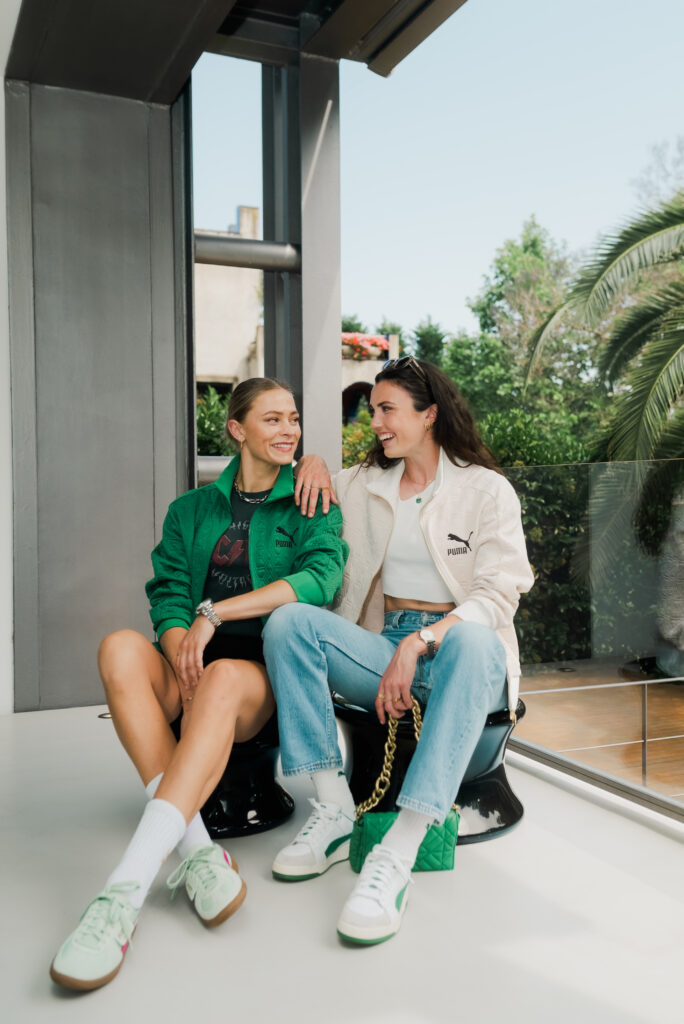
The sun is shining in Barcelona on the day of our shoot, with a cloud in the sky proving impossible to find. Despite attending training earlier in the day – in the same heat the rest of us on set continue to hide from – both Barça Femení ballers are in better spirits than anyone, most notably when discussing the gratitude they hold for living in the city.
“For me, it’s a dream playing here in Barcelona,” Engen says. “Just to be a part of such a big club, that cares so much for their female side, is incredible. We feel like we get a lot of support and the fans? They are amazing. I feel like we’ve been writing history together, us players and the fans. It’s a special bond between us and we’ve seen the games we’ve sold out the Camp Nou, which is pretty crazy.”
“The fans are amazing, as Ingrid said,” Rolfö says, continuing the show of love for their supporters.“We feel it every day. At training, they are outside the training ground supporting us and giving us energy.”
“When we play the big games, they are there and you can really feel the energy. It helps us a lot. I didn’t dream about becoming a footballer but I wish I had dreamt about playing here because it is such a cool experience to be a part of. Moving abroad, playing for one of the best clubs in the world, reaching (and winning) a Champions League final and being a part of this team here, it’s surreal.”
“I agree with Frido,” Engen adds. “I wish I knew that one day I would play for Barcelona. I know how much motivation that would have given me and it’s really cool that young girls now have this opportunity to dream big and find the facilities to get better and do what they love.”
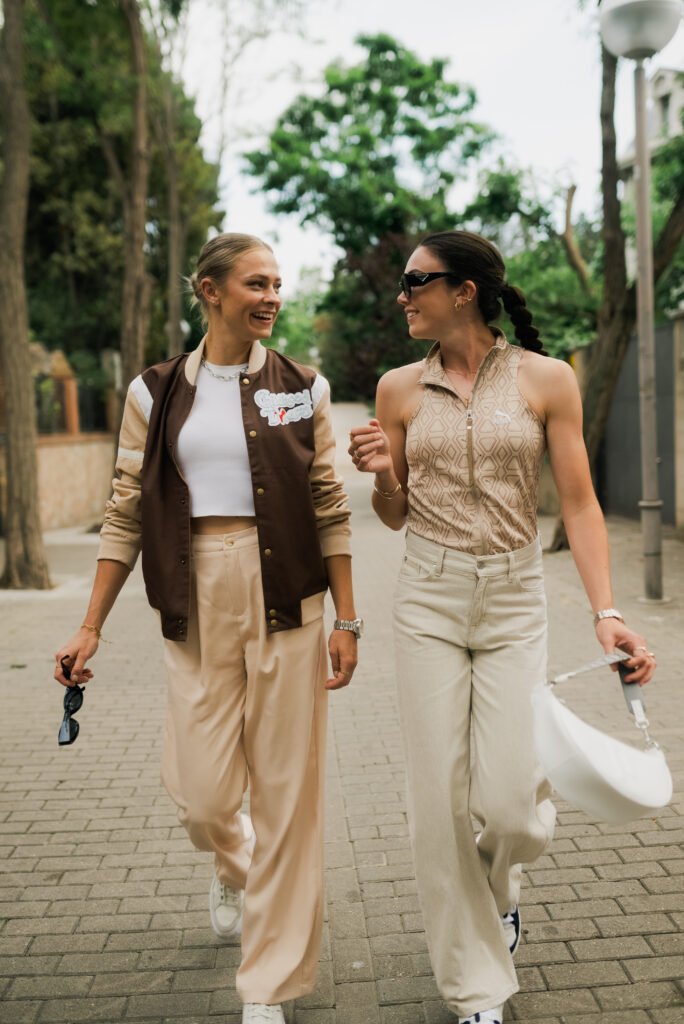
Whilst their influence at club level on aspiring female ballers cannot be understated, both Engen and Rolfö’s biggest opportunity to inspire a generation arrives this summer in the shape of the Women’s World Cup, held in Australia and New Zealand. Like any sport, success in a globally-watched tournament can create new heroes for supporters all over the world. The triumph of the Lionesses’ at the Women’s Euro 2022 finals is proof of that with young girls across England finding new role models to idolise having previously been turned away by the traditionalism and outdated mindset of the male game for years prior.
Rolfö, who holds 76 caps for Sweden, believes the upcoming World Cup will only be an improvement from previous tournaments due to the quality of the women’s game consistently increasing. “I think it’s so interesting to see how the women’s game is growing,” the Swede says with excitement in her eyes.
“We see it in the tournaments especially. We see one level at one tournament, then a new level at another and then another new level at the next, so it’s cool seeing how fast the game is growing. I think we will see the best tournament every year for the next couple of years.”
For Engen, the thought of featuring at the World Cup for Norway is another dream she never deemed possible as a young girl in Melhus. “It’s incredible what we are achieving and what we are doing. I don’t think I could have dreamed about this years ago.”
“With the new World Cup ahead and the really good tournaments in the last couple of years, the expectations for this summer are the same. The interest is there, people are going to show up and it’s going to be a great tournament. I’m really excited.”
Like most athletes, football doesn’t define either Rolfö or Engen. The growing interest in athlete self-expression is not exclusive to solely male players and as footballers continue to position themselves in the fashion scene, the demand from Gen-Z to see their favourite ballers away from the pitch only increases. This being something Engen enjoys.
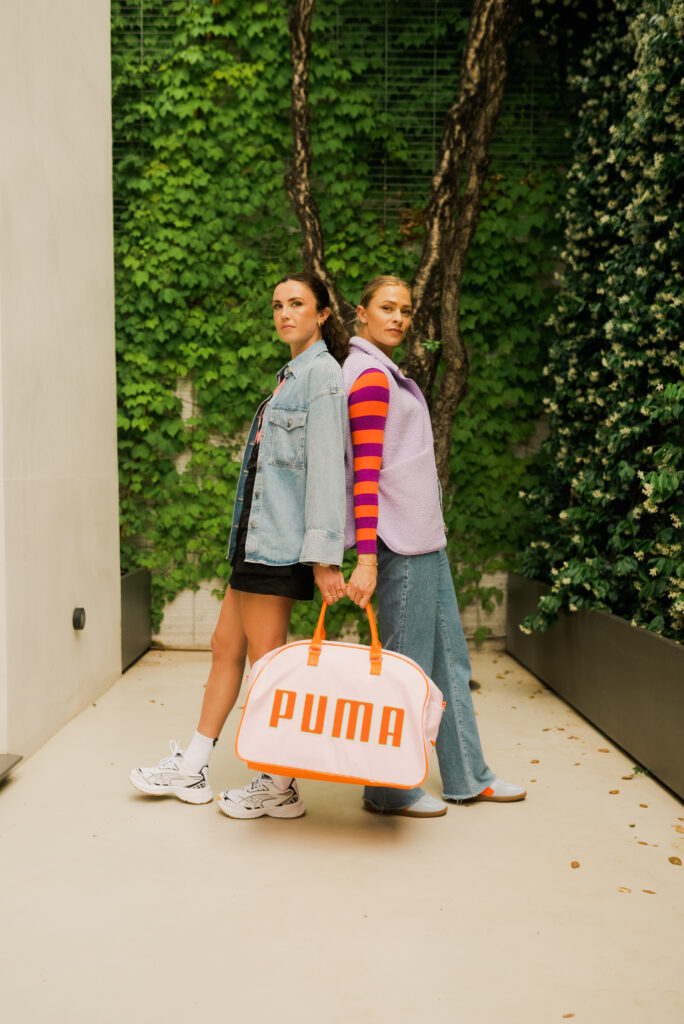
“I think my love for fashion is about showing another side to myself,” the midfielder reveals. “We are football players, yes, but we have other interests too. I think it’s really cool to show on my platforms what I like, who I am and explore myself through fashion, which is a big interest of mine.”
That love of self-expression on and off the pitch was a key reason Rolfö and Engen joined the PUMA family, with the German-founded brand regularly focusing its efforts on championing their male and female athletes on the same level. Manchester United’s Maya le Tissier, Chelsea’s Jess Carter and Wolsburg’s Alexandra Popp and are all also on PUMA’s athlete roster, highlighting the brand’s mission to progress the game further.
“We really are PUMA girls,” Rolfö says whilst wearing the brand from head to toe. “We love to wear PUMA and I like the style the clothes and sneakers have. It’s a mix between fashion and sport and that’s what I like the most. I feel comfortable and I feel fashionable so for me, it’s a perfect match.”
As ever, Engen agrees with Rolfö: “For me, PUMA is special. The brand has things that I don’t feel other brands have at the same level and as a female athlete, you also get the special things such as the collaborations, which are great. So for me, I love wearing PUMA and showing the brand off.”
At this point in the conversation, it feels nigh-on impossible to get Engen and Rolfö to disagree with each other. The duo’s close-knit friendship is becoming more evident by the minute, with each response they give broken up by smiles and laughter as they bounce off one another. So, learning that their everyday style continues that trend comes as no surprise, even when they admit to arriving at places in the exact same items of clothing which, you can probably guess, is often PUMA-branded.
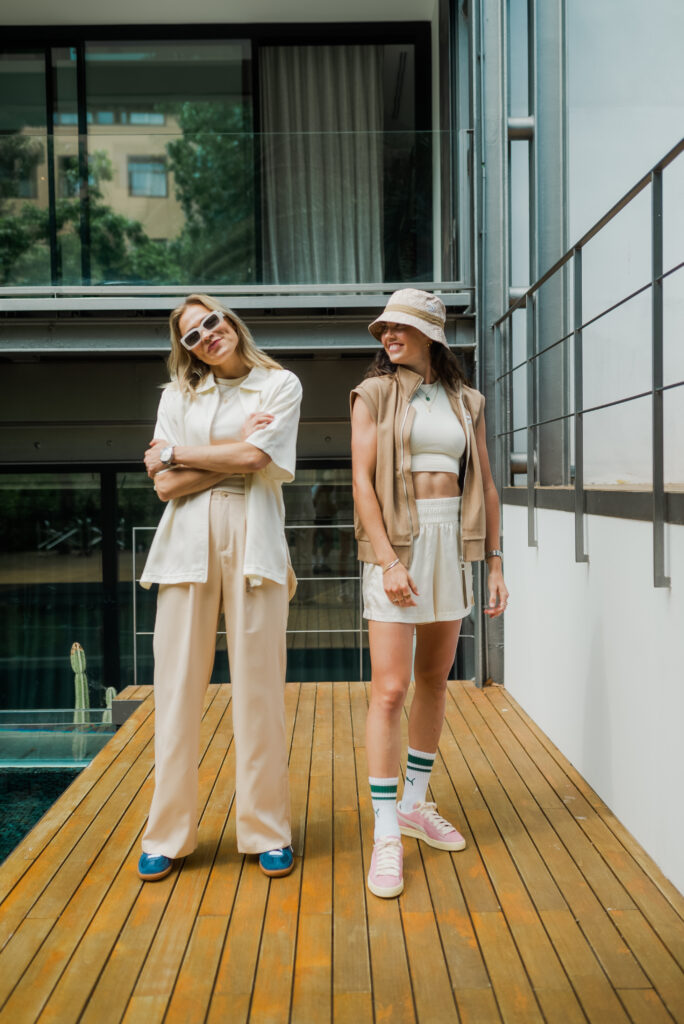
“It’s actually hard to explain your own style,” Rolfö responds when asked about her daily fashion choices. “I think it’s easier for someone looking at you to describe it than explaining it yourself but maybe like a mix of sporty, trendy, I don’t know…” she says before stopping to look at Engen for help.
“We have a very similar style, I would say,” Engen adds, coming to the aid of Rolfö. “We like the same things and we often show up in the same things.”
“It’s embarrassing!” Rolfö says in laughter. “Often, when we go to different dinners or when we go to lunch, we are wearing the same clothes!”
“The same jeans, the same shoes, a similar white top,” Engen describes. “I wouldn’t say we’re basic but we like the basic things. We also like to have some bold pieces. Colour on our purses, a lot of jewellery and some really cool sneakers. These kinds of things are where we go bold.”
“We have a lot of the same things,” Rolfö explains through the laughter. “A lot of PUMA pieces, for example, so it’s definitely not a coincidence that we are wearing the same clothes often.”
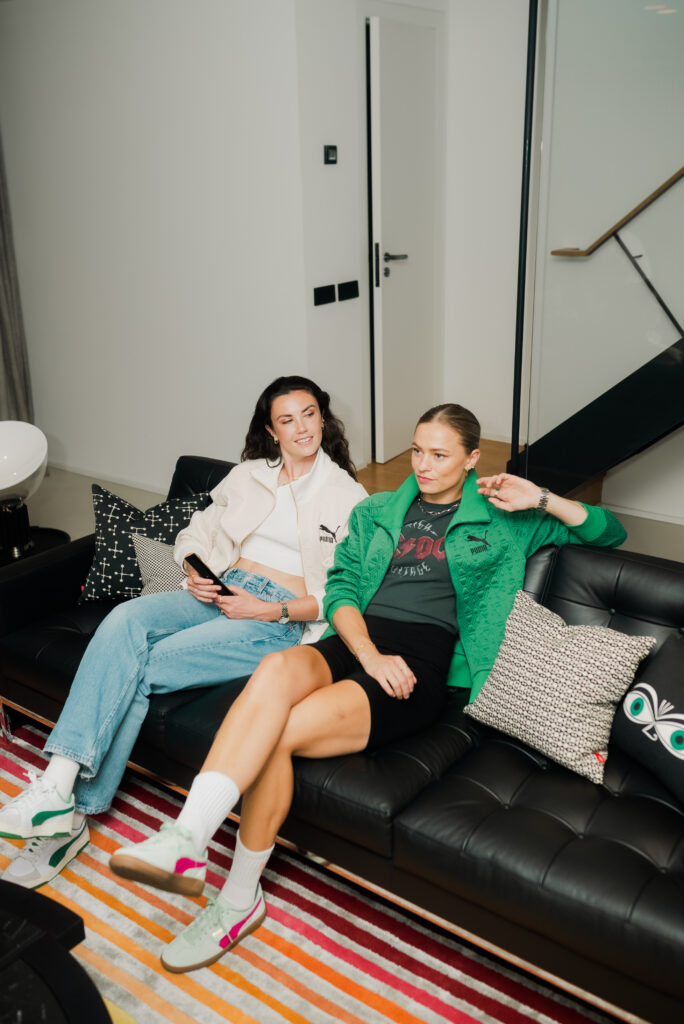
One occasion neither Engen nor Rolfö could afford to arrive in the same items was the Camp Nou tunnel. What first hit the scene through Barcelona’s male superstars, most notably Jules Koundé, the La Liga champions have allowed players to arrive to games in their own clothes – recreating the culture seen for so long in the NBA – driving football x fashion conversation to new heights.
In March, Barça Femení were given the same opportunity and boy did they deliver.
“It’s a really cool thing to do,” Rolfö says on pre-match fits. “All the fans and the people that follow us on social media see us on the pitch the whole time. Now, we get to show something else in the football stadium and inside Camp Nou. It was a fun way to express yourself, what you like to wear and how you are as a person. I really enjoyed walking on the…not catwalk…but the basement where we walked,” she laughs.
“The first time we were like ‘hmm, what do we do?’,” admits Engen, recreating the action of walking in with her bag. “Yeah, we’d just hear the clicking of the photographer,” Rolfö adds, who is also imitating what she describes, adding camera noises for extra effect. “It was fun!”
“We also heard after that it’s something we should do more often,” Engen says, something we’re all in agreement on.
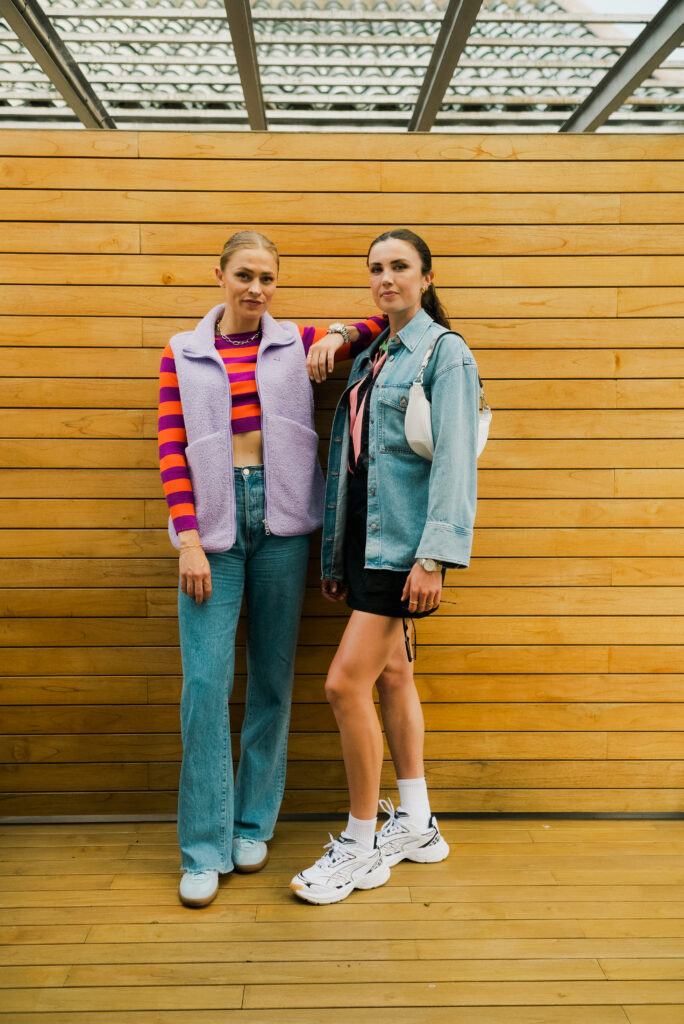
The topic of tunnel fits brings the conversation to the style within the dressing room which, for Rolfö and Engen at least, causes some debate. “We [Barça players] all have different styles. I’d say that me and Ingrid have more Scandinavian styles, so for us, it’s different from the Spanish style and what they like.”
“The other players are always saying to us ‘Ah, Scandi’s’,” Engen reveals on the fashion talk within the dressing room.
“Yeah, they say that!” Rolfö jumps in. “We have some people that have a really unique style like Asisat Oshoala for example. She likes to express herself with a lot of colours and patterns which is really cool and it really fits her.”
“Who is the best-dressed then?” Engen asks Rolfö, taking over the role as interviewer on our behalf.
“I really like Alexia Putellas’ style,” Rolfö responds. “I think she has a cool style, she’s like classy but still sometimes cool. I’m trying to go through everyone in the locker room and see them walking in” she laughs. “Yeah, let’s say Alexia,” both say agreement.
Despite their fame and access to brands, Rolfö and Engen are just like everyone else when it comes to their fashion influences. In a world where technology has allowed creatives all over the world to build their own platform and community, social media has become a breeding ground for inspiration from all things fashion-related, something Engen utilises.
“I get a lot of inspiration from Instagram,” the Norwegian says. “Following brands, Scandinavian brands that I’m a big fan of. I think my fashion inspiration is pretty random. In my feed, people come up and you save it and get ideas, so that’s how getting inspiration for outfits works for me.”
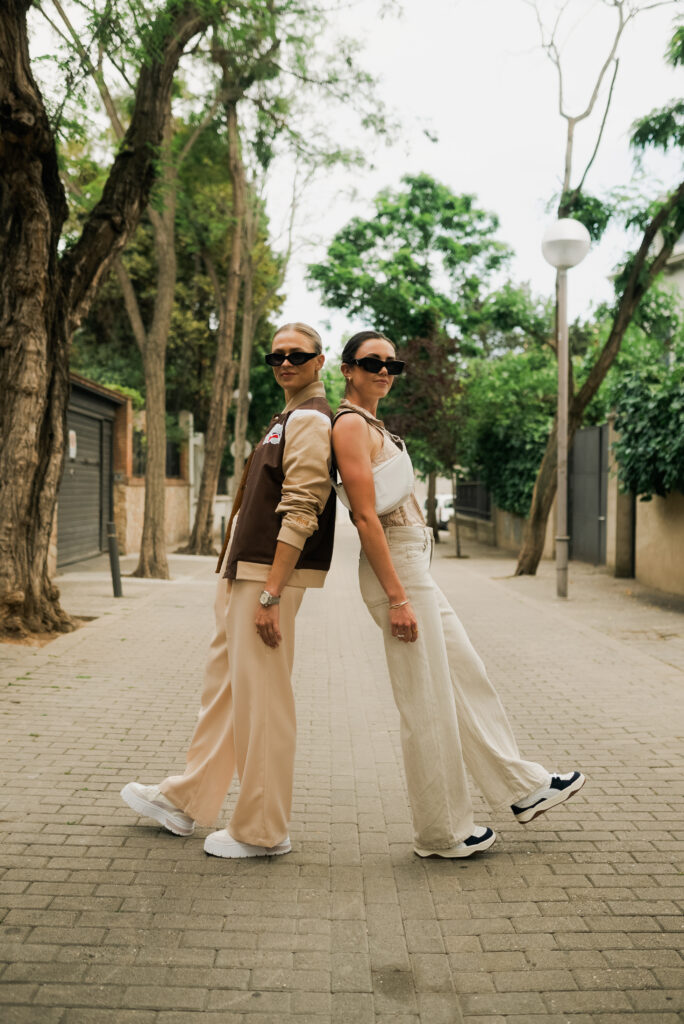
“I think my inspiration is more from watching people in the street,” says Rolfö. “I really like to get inspired by people, not only with what they wear but also with how they express themselves. I really like Pinterest too, I find a lot of style inspiration on there.”
Away from football and fashion, another look into the personality of athletes is through their taste in music. From vibing around the house to the dressing room playlist before a big game, a lot can be learned by hearing the tracks each baller has on repeat right now. Unsurprisingly, a love for music is a common trait of both Engen and Rolfö’s personalities.
“It’s a big part of our lives,” says Engen. “Music and sport are two things that fit really well together. We use music not only for motivation when we’re getting ready, but also to calm down. It plays an important part in both our lives and the dressing room before and after games. Favourite artist? Khalid is a big favourite for me. His songs are more calm, but they put you in a good mood.”
“I have some favourite songs that I always like to listen to before a game,” Rolfö explains. “Sometimes I listen to a calm song because it can make me even more focused and gives me a good vibe. It doesn’t always have to be pumped up because I know I will get that in the locker room so in the car before a game, I listen to music that makes me feel good.”
“I also have a favourite artist that I like to listen to, she’s Swedish singing in English and her name is Seinabo Sey. She’s an amazing singer and one of my favourites.”
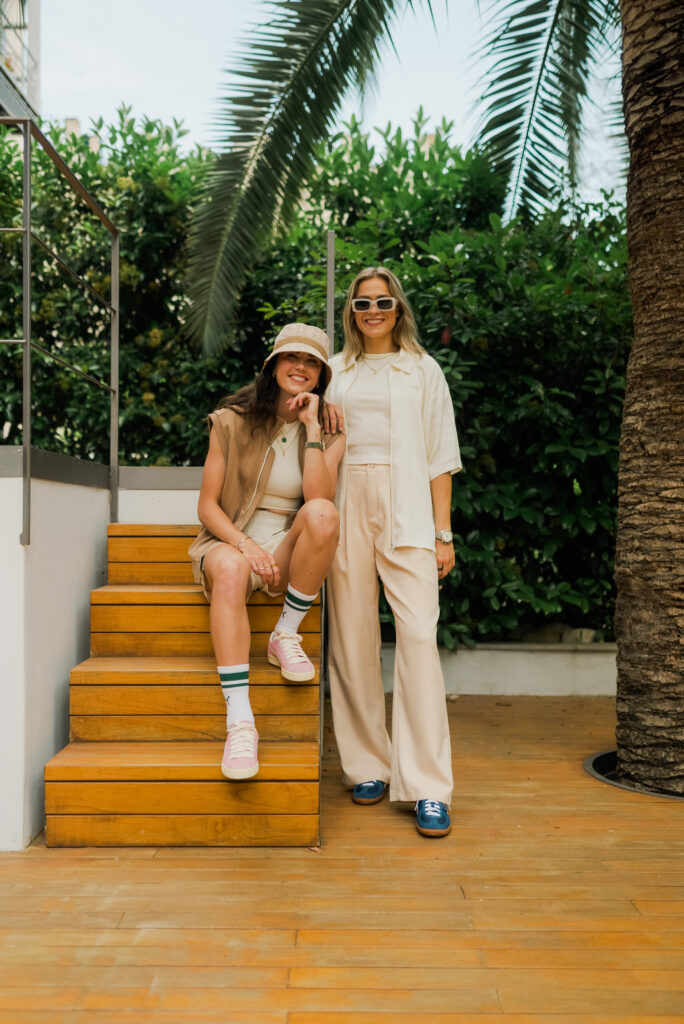
Despite their affection for music, neither Engen nor Rolfö are yet to reach the level of musical taste that would see them take responsibility of the speaker in the Barcelona dressing room. Instead, the role belongs to Spanish midfielder Patricia Guijarro, whose love of reggaeton has been hard to adjust to for two Scandinavians.
“Patricia Guijarro is our DJ. She’s taking good care of it,” Rolfö says.
“There’s a little bit too much Spanish for us,” Engen responds, grinning at the thought. “We try to say ‘Can we have an English song now?’ when we can.”
“Yeah, it’s reggaeton the whole time! It’s just the same rhythm so sometimes you feel like maybe we should get another rhythm in here now,” Rolfö says once again in laughter. “Like Ingrid said, we try to put the English songs in. If she’s asking, I’m like ‘You can add this one to the list’. She is listening to us but she could do even more. But now, we’re starting to like some of the Spanish songs. It’s like ‘Oh, it’s not actually that bad’ but sometimes it’s just too many in a row.”
The friendship between Rolfö and Engen is as evident as any friendship could be. Two girls from Scandinavia – who never had dreams of becoming professional footballers – find themselves playing together at one of the biggest clubs in the game years later with a major brand in PUMA standing alongside them on their journey.
Despite all odds and challenges they have faced within a sport that has been labelled as a ‘man’s game’ for most of its history, Rolfö and Engen have made it to the top and now find themselves as role models to a new generation who will have fewer barriers on their journey thanks to the struggle and effort of today’s female athletes. For that very reason, it feels fitting to end the interview with one last question: ‘What would your advice be to the young girls who are now able to seriously dream about becoming professional footballers?’
“Dream of it,” Engen begins. “Believe you can do it and have fun, that’s the most important thing. If you don’t think it’s fun, it’s not going to work.”
Rolfö agrees. “To have fun is the most important part but be confident, believe in yourself and believe that you can reach this level,” the 29-year-old says. “We are two ordinary girls from two small places. I was not a big talent that everyone could see was going to make it. I had to work hard and there are many in the team that did the same. We believed in ourselves and we ended up here, in Barcelona.”
Conversation: Ryhanna Parara
Words: Jordan Clarke
Photography: Shane Bain
Video: Oliver Hayes
Styling: Stephanie Wüstemann

